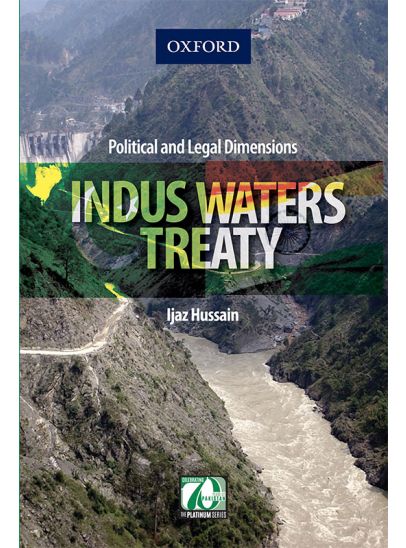INDUS WATERS TREATY
1st Runner-up of the Karachi Literature Festival (KLF)-German Peace Prize for 2018
Negotiated under the World Bank auspices, the Indus Waters Treaty (signed in 1960) settled the water dispute by dividing the Indus Rivers, allocating three Eastern Rivers to India and three Western Rivers to Pakistan. The Treaty worked well for some time but has run into difficulties in recent years.
The book deals with the genesis of the dispute, the World Bank’s role in the settlement, the Wullar Barrage, Salal, Baglihar, and Kishenganga Dams disputes, the impact of climate change on the Treaty, India’s current discontentment with the Treaty, and its treatment of Nepal and Bangladesh on the water issue.
This is the first ever study which approaches the subject from political and legal perspectives. Based on declassified World Bank documents, at least four aspects of the book may be termed as unique to it. First, it demonstrates that it was the World Bank which made Pakistan surrender the Eastern Rivers to India with an ulterior motive to rope in the latter into the Western fold in the Cold War struggle. Second, it reveals that Pakistan lost the Baglihar case due to the curt attitude of the leader of the Pakistan delegation, provoking the Neutral Expert to give his pronouncement against it. Third, it studies for the first time the possible effect of climate change on the Indus Rivers and its political fallout on the two countries. Fourth and final, it investigates India's uncompromising attitude and explores ways and means of getting out of the water imbroglio.
 Rights
World
Rights
World
 Year of Publication
2017
Year of Publication
2017
 Binding
E-Book
Binding
E-Book
 Pages
584 pages
Pages
584 pages




 Bulk Order
Bulk Order Request a Quote
Request a Quote